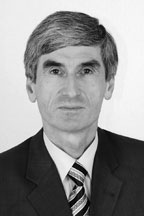Computer technologies to improve academic education and recreation process efficiency
Фотографии:
ˑ:
Teoriya i praktika fizicheskoy kultury №3 2018, pp.49-51
PhD, Associate Professor M.Kh. Khaupshev1
PhD, Associate Professor A.Z. Bazhev1
M.M. Kirzhinov1
G.A. Panchenko2
1Kabardino-Balkarian State University n.a. Kh.M. Berbekov (KBSU), Nalchik
2Kabardino-Balkarian State Agrarian University n.a. V.M. Kokov (KBSAU), Nalchik
Objective of the study was to assess benefits of the modern computerized monitoring technologies to probe the students’ motivations for and satisfaction by the academic physical education service versus their progress in the academic learning and health programs. We designed special innovative Physical Health Monitoring software patented by Certificate #2014661453, with the relevant computer technology implemented at Kabardino-Balkarian State University n.a. H.M. Berbekov and Kabardino-Balkarian State Agrarian University n.a. V.M. Kokov to test and monitor students’ health on an integrated basis. The students’ health versus the academic progress was rated on the sample of the first-to-third year students (n=567 including 177 males and 390 females) of the above universities. The students’ motivations for the academic physical education service were ranked as follows: self-improvement (including bodybuilding and health) ranked #1 with 3.38±0.39 points; positive emotions ranked #2 with 3.08±0.36 points; and the academic success ranked #3 with 1.54±0.33 points. The study data and analysis showed benefits of the recreation process facilitated by the modern computer technologies that provide real-time fair data on the academic progress rates versus the students’ motivations, with the ways to cultivate the healthy lifestyle and build the quality education related motivations.
Keywords: student, e-monitoring, motivations, health, learning process, success.
References
- Andreev V.I. Problemypedagogicheskogo monitoringa kachestva obrazovaniya [Issues of pedagogical monitoring of quality of education]. Izvestiya RAO, 2001, no. 1, pp. 35-37.
- Bal'sevich V.K., Lubysheva L.I. Sportivno-orientirovannoe fizicheskoe vospitanie: obrazovatelny i sotsialny aspekty [Sports-centered physical education: educational and social aspects]. Teoriya i praktika fiz. kultury, 2003, no. 5, pp. 19-22.
- Bal'sevich V.K., Lubysheva L.I., Komkov A.G. et al. Innovatsionnye tekhnologii modernizatsii fizicheskogo vospitaniya shkolnikov. Sportivno-orientirovannoe fizicheskoe vospitanie uchashchikhsya obshcheobrazovatelnykh shkol [Innovative technologies of modernization of school physical education. Sports-centered physical education in general education schools]. St. Petersburg: St. Petersburg SRIPC publ., 2006. 72 p.
- Gavrilov D.N. Osobennosti monitoringa fizicheskogo sostoyaniya naseleniya [Features of monitoring of health status of the population]. Teoriya i praktika fiz. kultury. 2006, no. 3, pp. 60-62.
- Izaak S.I. Genetiko-ekologicheskie aspekty organizatsii monitoringa zdorovya podrastayuschego pokoleniya v usloviyah Kavkazskogo reg. [Genetical and ecological aspects of organization of health monitoring of rising generation in Caucasian region]. Proc. res.-practical conf.. Nalchik, 2004, pp. 96-99.
- Landa B.H. Metodika kompleksnoy otsenki fizicheskogo razvitiya i fizicheskoy podgotovlennosti. Ucheb. posobie [Methods of integrated assessment of physical development and physical fitness. Study guide]. Moscow: Sovetskiy sport publ., 2006, 208 p.
- Shishov S.E., Kalney V.A. Shkola: monitoring kachestva obrazovaniya [School: education quality monitoring]. Moscow: Russian Teacher Society publ., 2000, 160 p.



 Журнал "THEORY AND PRACTICE
Журнал "THEORY AND PRACTICE